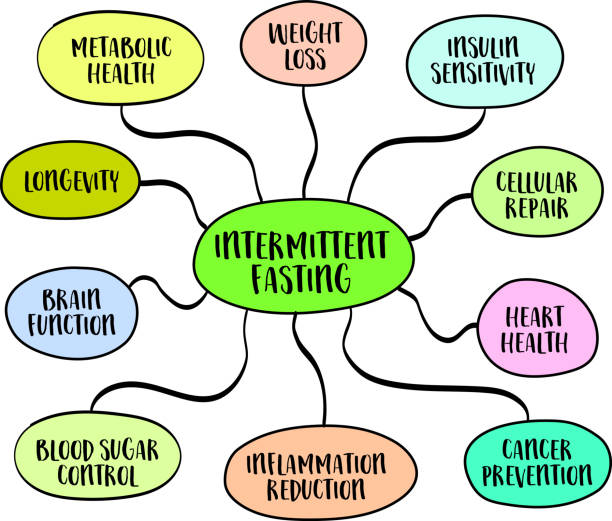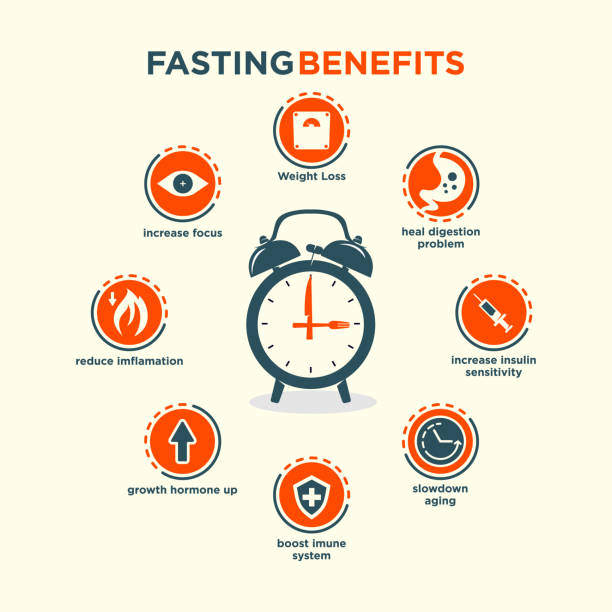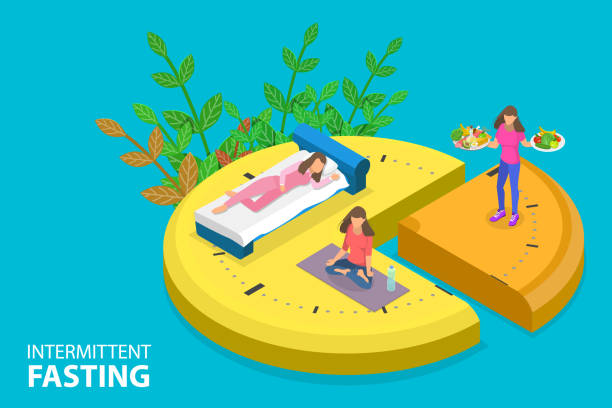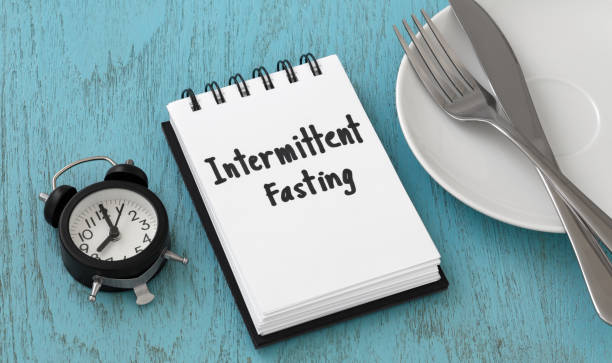
Let’s talk about intermittent fasting. You’ve probably heard about it in every fitness circle, read about it in some wellness blog (probably while munching on a donut), and maybe even tried it because, hey, who doesn’t want to lose a few pounds while also skipping breakfast? But here’s the kicker: Intermittent fasting is so much more than just a weight loss hack.
Before we dive into all the surprising benefits beyond fitting into your old jeans, let’s first address the elephant in the room: fasting means not eating for periods of time. Yeah, it sounds pretty crazy, but bear with me – it’s a lot cooler than it seems. And no, you don’t have to become a monk to reap the benefits. So let’s put down that donut for a minute and explore the real magic behind intermittent fasting (with a side of humor, of course!).
What is Intermittent Fasting Anyway? (Spoiler: It’s Not Starvation)

First things first, let’s clear up the confusion. Intermittent fasting isn’t about starving yourself. You’re not stuck eating air or pretending a glass of water is your main course. It’s all about when you eat, not what you eat (though, maybe avoid the donut… occasionally). The most common form is the 16/8 method, where you fast for 16 hours and eat within an 8-hour window. But let’s be real – the idea of not eating for 16 hours sounds horrifying at first. “What do you mean I can’t snack after midnight like a gremlin?” Trust me, once you get used to it, it’s not that bad. And bonus, there’s more to it than just losing weight.
1. Better Brain Function: Your Brain on Intermittent Fasting
So you thought fasting was just about losing those love handles? Think again! Turns out, intermittent fasting is like giving your brain a little vacation from the endless parade of snack breaks. When you fast, your body goes into a process called autophagy. Fancy word, right? It’s basically when your body cleans up all the junk – including in your brain. And no, this isn’t the kind of brain junk like bad memories of your embarrassing teenage years. We’re talking about cellular waste, proteins, and the stuff that can slow your brain down.
Ever wonder why some people say they feel sharper during their fasting hours? Well, now you know – you’re basically giving your brain a good old spring cleaning. Plus, studies suggest fasting may even reduce the risk of neurodegenerative diseases like Alzheimer’s and Parkinson’s. Who knew skipping breakfast could be good for your brain?
2. Fasting = Youth Serum? Slowing Down Aging Like a Pro
Move over anti-aging creams, there’s a new sheriff in town! Did you know intermittent fasting could actually slow down aging? You read that right. Forget splurging on overpriced skincare products – fasting might just be your ticket to aging like a fine wine. Autophagy (remember that fancy term?) doesn’t just clean up your brain; it helps regenerate cells throughout your body. Think of it as your body hitting the reset button.
Fasting triggers human growth hormone (HGH), a little hormone that’s a big deal when it comes to cell repair, muscle growth, and even keeping your skin looking youthful. So yeah, you might just look a little more radiant while flaunting your new slim waistline. Anti-aging and weight loss? Now we’re talking!
3. Improved Digestion: Bye-Bye Bloating, Hello Happy Gut
Let’s face it, nobody enjoys the feeling of bloating after indulging in a giant meal (or three). That post-dinner food baby can make you feel like you’re carrying an extra person around. Well, here’s where intermittent fasting comes in clutch. By giving your digestive system a break, you’re allowing your gut to work more efficiently. No more 24/7 processing; it’s like giving your stomach a well-deserved vacation. Fasting improves digestion, reduces inflammation, and can even help with conditions like IBS.
Who knew skipping meals could make your gut so happy? And the best part? No more awkward bloat when you’re trying to squeeze into those skinny jeans!
4. Blood Sugar Control: Fasting vs. Sugar Spikes
We all know the sugar rollercoaster – one minute you’re full of energy, and the next, you’re crashing harder than a toddler post-candy binge. Well, good news: intermittent fasting helps balance your blood sugar levels like a boss. No more sudden spikes and crashes; your body becomes more sensitive to insulin, which means better control over blood sugar.
If you’ve ever had to unbutton your jeans after eating too many carbs (we’ve all been there), fasting could help. It’s like giving your body time to burn through all that sugar instead of storing it as fat. And for those at risk of type 2 diabetes, this could be a game changer.
5. Fasting for a Longer Life: Forget the Fountain of Youth
Okay, okay, we can’t promise immortality, but hear us out. Studies on animals have shown that intermittent fasting can increase lifespan. Yes, you heard that right. You might live longer if you give your body time to rest from constant eating. It’s like telling your cells, “Hey, you can chill now, you don’t need to work 24/7.”
While the human studies are still being conducted, the results so far are promising. So while we wait for scientists to tell us we’re all going to live to 120, fasting might just be your ticket to living a longer, healthier life. Plus, no more FOMO (Fear of Missing Out) – you’ll have plenty of time for all those bucket list activities!
6. Fasting and Fitness: Boosting Muscle and Endurance
Intermittent fasting doesn’t mean you have to give up on your fitness goals. In fact, it might actually help improve them! Fasting boosts the production of growth hormones, which play a crucial role in building lean muscle mass. And no, you won’t shrivel up into nothing – you’ll still be able to hit the gym, build muscle, and see gains, all while reaping the benefits of fasting.
Not only that, but fasting improves endurance by enhancing your body’s ability to burn fat for fuel. So if you’re looking to get that extra edge during your workout, fasting could be the secret weapon you’ve been missing.
7. More Time, Less Stress: Bye-Bye Breakfast Rush!
One of the most underrated benefits of intermittent fasting? Time management. Let’s be real – how much time do we waste trying to figure out what to eat for breakfast, lunch, and dinner? And then you’ve got the snacks in between. Fasting simplifies your routine. You’re eating less frequently, which means less meal planning, fewer dishes, and more time to binge-watch your favorite shows. Win-win, right?
Plus, without constantly thinking about food, you’ll find yourself less stressed over calorie counting or making the “perfect” meal. Say goodbye to obsessing over food, and hello to a life with a little less worry.

Final Thoughts: It’s Not All About Weight Loss
By now, you’ve probably realized that intermittent fasting isn’t just about weight loss. From brain health to digestion, and even slowing down aging, the benefits go way beyond shedding a few pounds. It’s about giving your body the rest it deserves, allowing it to function better and even live longer.
So, next time you think of skipping breakfast (on purpose), remember that intermittent fasting is more than just a trendy diet – it’s a lifestyle that can transform your overall health in unexpected ways. Just don’t forget to eat a balanced meal once that fast ends, okay?
And, of course, take all those fasting-related mood swings with a grain of salt… or a slice of pizza.




